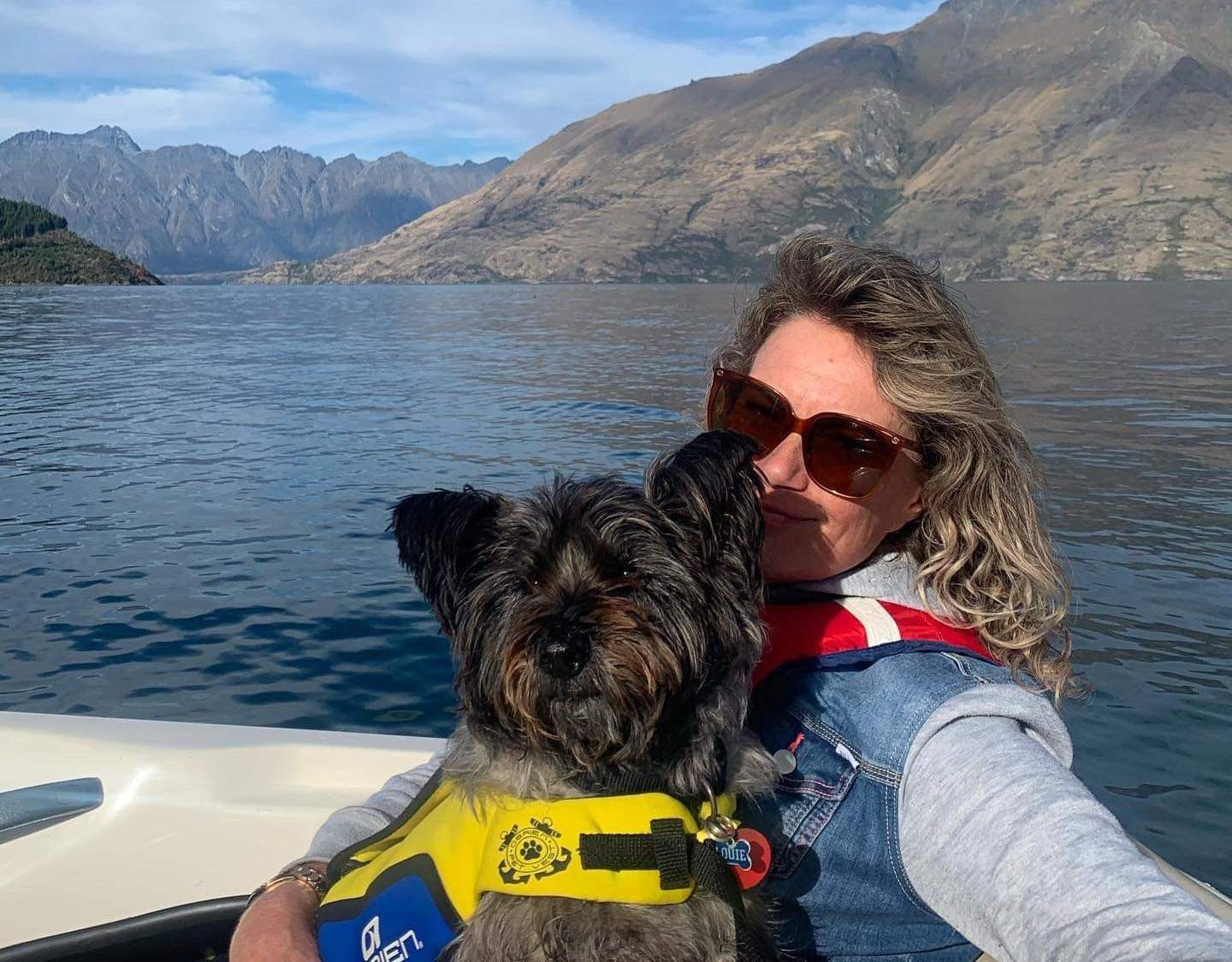Staff Appreciation Post: Michelle Ingham
Today we would love to highlight the work of Michelle Ingham, one of our outstanding community occupational therapists who is championing cultural development here at the Laura Fergusson Brain Injury Trust.
It has been a whirlwind of a year since Michelle made the move to our team, and it is a move she does not regret. After working in national senior management roles for a Health & Rehab organization where she travelled regularly, Michelle began to miss the client connection. So, she decided to take a step back, and enter a more client-facing role.
“I was missing seeing the outcomes for the client, I was doing this vicariously through my team,” says Michelle. “I wanted to be client-facing again working on complex and serious injury cases, and feel like I was doing something that was making a difference in my client’s life.”
No one day is the same as a community occupational therapist. Her role involves travelling to clients around Canterbury, meeting with clients, their families and support networks, often directly after discharge from Burwood Hospital.
A huge part of Michelle’s work involves working with our multidisciplinary team to create the most ideal outcomes for the client.
“I’ve got to say this is probably the best team that I’ve worked with. The tight-knit team is something that I really, really love. Right from the day I started, I felt like I was accepted and part of the LFBIT family.”
One area that Michelle shines in is whakawhanaungatanga, the building of relationships with clients. Through whakawhanaungatanga, Michelle becomes less of a worker in a client’s home and more of a family member. She forms relationships not only with the client but also with their whānau and friends.
“I love getting to know my clients and their whānau. Connecting at a deeper level, allowing the time to focus on immediate needs initially, and then future aspirations, is paramount. It is very easy as clinicians to make assumptions about what an individual and their whānau may want to achieve in rehab, or what this looks like and means for them.”
Figuring out how to implement whakawhanaungatanga, on a wide scale is a challenge Michelle is active in solving. She is a member of the team working on the operationalisation of intentional cultural approaches at a clinical level within LFBIT.
Approaching Māori culture can be daunting for some, whether it be not wanting to offend, feeling like you’re pronouncing words incorrectly, or just not knowing where to start. Michelle says the best place to start is by bringing something to the table.
“There’s nothing worse than turning up ‘empty-handed’ in terms of what the meeting is for and what you can offer. Often a client and/or their whānau have had negative health experiences. Being upfront, and explicit with the intentions of the meeting, offering to meet in a neutral space of your client’s choice, acknowledging any hurt or harm, and offering kai (refreshments), creates a ‘safe place’ for connections to begin.
“The foundation of my kaupapa (approach) is to weave tika (doing things right), pono (honesty and truth), and aroha (compassion, empathy, generosity) in everyday practice; that is doing the right thing with integrity and compassion.”
Most of our clients are required to deal with multiple systems and agencies post-injury or trauma, therefore helping clients navigate their recovery through human connection and empathy is so important in Michelle’s work.
“I have clients where I am kind of a part of the family now. I’m often on speed dial, but that is okay, it is a two-minute conversation. Being available, and authentic is significant in fostering continued trust and effective communication and smoother wellness journey for our clients.”
Another element essential to Michelle’s approach is mana-enhancing practice (practising whakamana). Practising whakamana provides a space to validate, empower and enable our clients, in partnership and in effect protect the client and their whānau. This is especially important to implement with Māori tāne (men), for whom there is an overrepresentation of traumatic brain injury and spinal cord injury.
“For men, having their physicality drastically altered and how others perceive this altered state, profoundly affects their identity and their wairua (attitude, feeling, and spirit). This can be incredibly damaging for our tāne and a huge barrier to engagement with health providers.
Michelle also wanted to take a moment to honour Kathryn Jones, CEO of Laura Fergusson Brain Injury Trust, for her willingness to engage in cultural conversation.
“Kathryn’s relatability to us is so important. She takes time to sit down at the table and have lunch with us, she genuinely cares about what we have to share, and she shows vulnerability and connects to us. You can’t be a leader unless you’re prepared to do that, and I feel like Kathryn will lead this cultural development well.”
There are incredible leaders throughout LFBIT, and we are incredibly fortunate and grateful to have Michelle as a part of our team. You are a wonderful personality to be around and an essential leader for us all in our cultural development. Kātahi rā koe!


